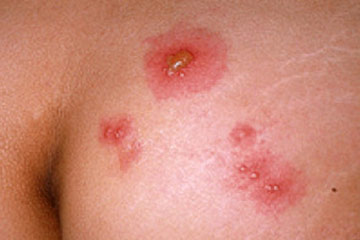Pertussis Prevention
Vaccines
The best way to prevent pertussis (whooping cough) among infants, children, teens, and adults is to get vaccinated. Also, keep infants and other people at high risk for pertussis complications away from infected people.
In the United States, the recommended pertussis vaccine for infants and children is called DTaP. This is a combination vaccine that protects against three diseases: diphtheria, tetanus and pertussis.
Vaccine protection for these three diseases fades with time. Before 2005, the only booster available contained protection against tetanus and diphtheria (called Td), and was recommended for teens and adults every 10 years. Today there is a booster for preteens, teens and adults that contains protection against tetanus, diphtheria and pertussis (Tdap).
Vaccine protection for pertussis, tetanus, and diphtheria fades with time, so adults need a booster shot. Experts recommend adults receive a tetanus and diphtheria booster (called Td) every 10 years and substitute a Tdap vaccine for one of the boosters. The dose of Tdap can be given earlier than the 10-year mark. Getting vaccinated with Tdap – at least two weeks before coming into close contact with an infant - is especially important for adults who are around infants. Adults 65 years and older (grandparents, child care providers, and healthcare providers) who have close contact with infants should get a dose of Tdap, following the newest vaccine recommendations.
Remember that even fully-vaccinated adults can get pertussis. If you are caring for infants, check with your healthcare provider about what's best for your situation.
Getting vaccinated with Tdap — at least two weeks before coming into close contact with an infant — is especially important for families with and caregivers of new infants.
The easiest thing for adults to do is to get Tdap instead of their next regular tetanus booster-that Td shot that they were supposed to get every 10 years. The dose of Tdap can be given earlier than the 10-year mark, so it is a good idea for adults to talk to a healthcare provider about what is best for their specific situation.
Source
Centers for Disease Control and Prevention






